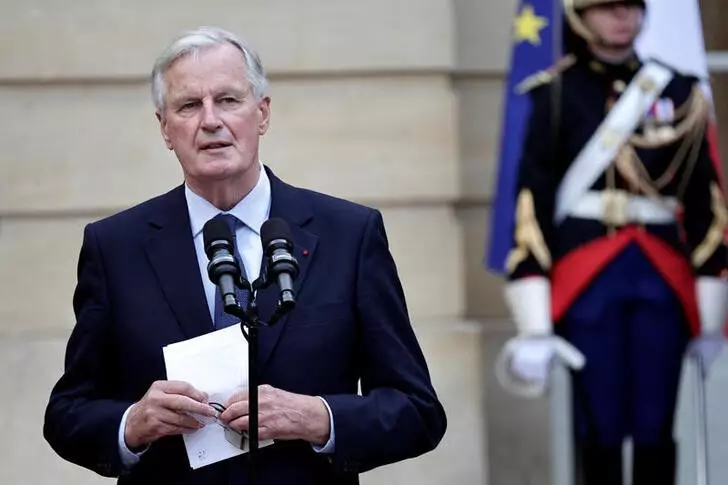Michel Barnier, a figure known for his role in negotiating Brexit, has now been appointed as the Prime Minister of France. This transition from EU politics to domestic governance comes at a crucial time for the country, as it is faced with a fragmented political landscape and economic challenges. With his extensive experience in European affairs, Barnier is expected to navigate the complexities of French politics, which differ significantly from his previous role.
France, like many other European countries, is grappling with deep political faultlines that have only been exacerbated by recent events. President Emmanuel Macron’s decision to call a snap legislative election resulted in a hung parliament, creating further uncertainties in the political arena. As Barnier steps into his new role, he will have to contend with a divided parliament and push through crucial budget legislation that involves significant spending cuts.
The appointment of Barnier as Prime Minister has received mixed reactions from various segments of society. While investors have shown a positive response, with government borrowing costs dropping slightly, the political left has condemned the decision as a “democratic coup.” Street protests have been announced, indicating the polarized nature of public opinion regarding Barnier’s appointment and the implications it might have on French governance.
Barnier’s tenure as Prime Minister faces challenges from various political factions, including the far-right National Rally. His interactions with Marine Le Pen’s party will be closely watched, as any compromises made to secure their support could result in criticism from other quarters. The internal dynamics of the government, the demands of different political groups, and the pressure to deliver on key issues such as the cost of living crisis, security, and immigration will test Barnier’s leadership skills.
The relationship between President Macron and Prime Minister Barnier will be crucial in determining the future direction of French politics. Macron’s desire for an adversarial yet collaborative partnership with Barnier reflects the need to balance differing viewpoints within the government. However, skepticism remains regarding Barnier’s ability to challenge the president’s decisions, with some seeing him as a mere extension of Macron’s leadership style.
Barnier’s political journey from EU negotiator to French Prime Minister has witnessed shifts in his ideological stance. His failed attempt to become the Republican party’s presidential candidate in 2021 and his evolving views on immigration indicate a departure from his earlier positions. The need to accommodate different political perspectives and adapt to changing circumstances will be a significant test for Barnier as he navigates the complexities of domestic governance.
The appointment of Michel Barnier as Prime Minister marks a significant transition in French politics. As he embarks on this new chapter, Barnier will face formidable challenges that require diplomatic finesse, strategic decision-making, and the ability to reconcile divergent interests within the government. The success of his tenure will depend on his capacity to navigate the intricate political landscape of France and address the pressing issues facing the country.

